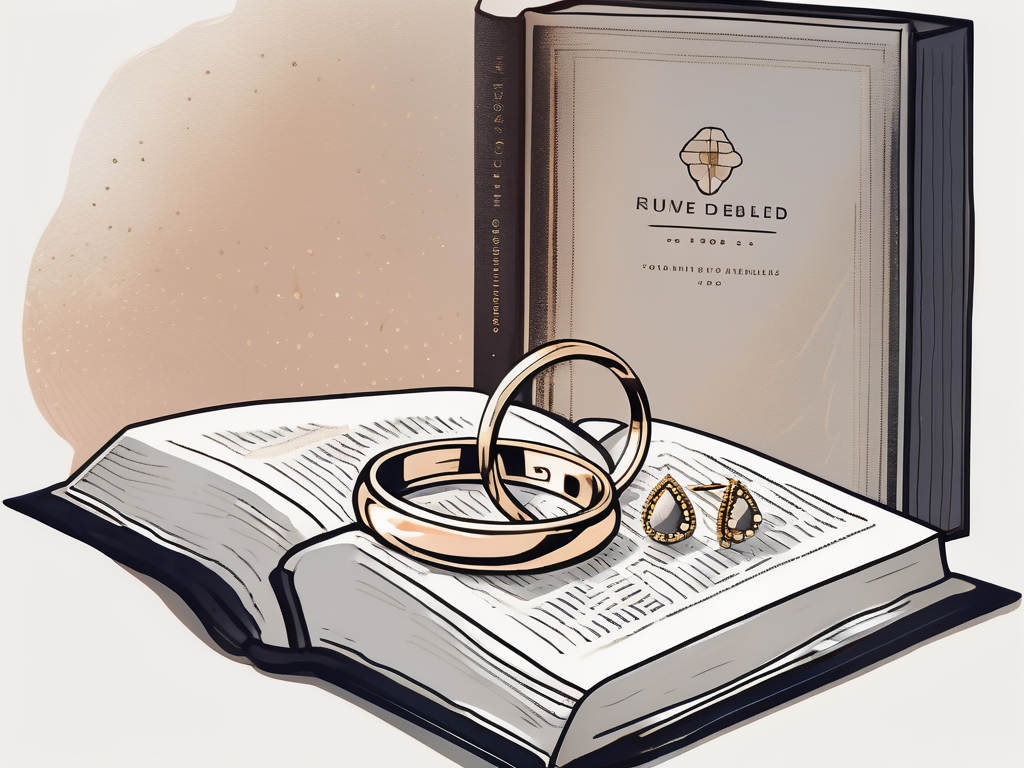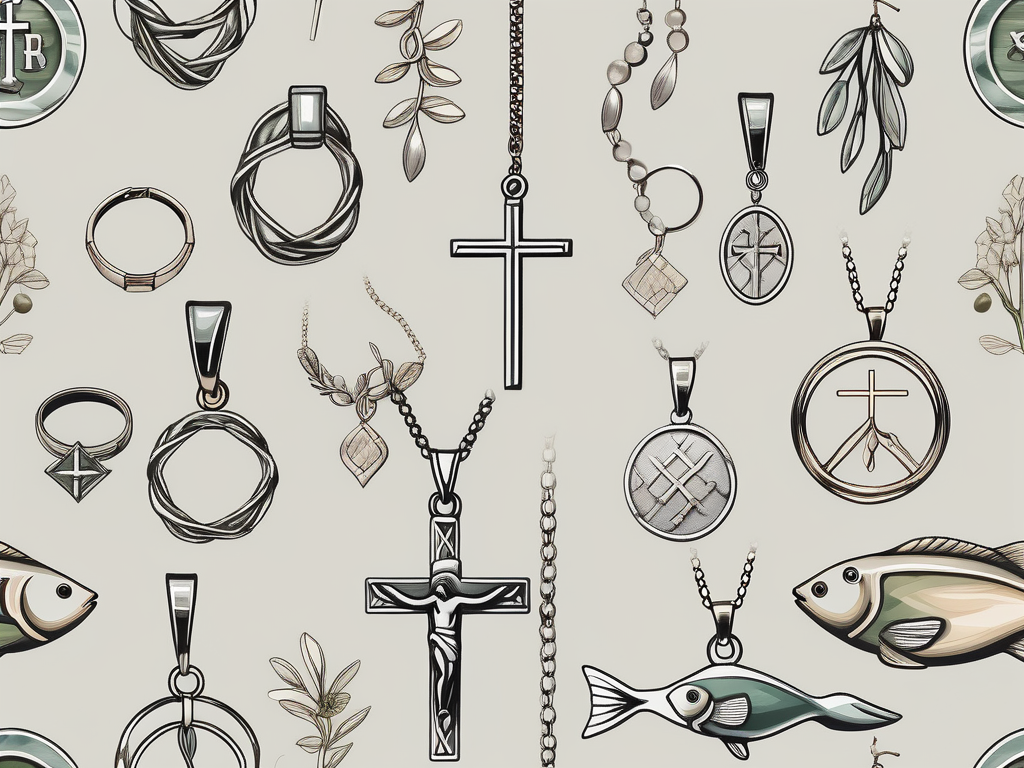In today’s society, body piercings have become a popular form of self-expression and personal style. But what does the Bible have to say about this practice? Let’s delve into the topic and explore the biblical perspective on piercings.
Understanding the Context: Piercings in Biblical Times
Before we dive deeper into the religious viewpoint on piercings, it’s essential to understand the cultural context in biblical times. In ancient cultures, including those mentioned in the Bible, body modifications such as piercings held significant meaning.
In biblical times, piercings were not merely a fashion statement or a form of self-expression; they were deeply rooted in the cultural and religious practices of the time. These body modifications were not limited to a specific gender or age group; rather, they were prevalent among both men and women, young and old.
The Significance of Piercings in Ancient Cultures
In various ancient cultures, piercings were often associated with religious rituals or social status. For instance, in some cultures, specific piercings were a rite of passage into adulthood or symbolized membership in a certain tribe or community. These piercings were not just decorative; they carried a profound spiritual and social significance.
For example, in ancient Egypt, ear piercings were common among both men and women. They were believed to enhance one’s spiritual connection and were often adorned with amulets and charms to ward off evil spirits. Similarly, in ancient Mesopotamia, nose piercings were considered a symbol of beauty and fertility, and they were often worn by married women.
Furthermore, in ancient Greece, piercings were associated with the worship of gods and goddesses. It was believed that by adorning their bodies with piercings, individuals could communicate with the divine and seek their blessings. These piercings were not only limited to the ears and nose but also extended to other parts of the body, such as the lips, tongue, and navel.
Biblical References to Piercings
While the Bible doesn’t extensively discuss piercings, it does mention them in certain instances. In Genesis 24:22, Abraham’s servant gave a nose ring and bracelets to Rebekah. This suggests that piercings were not unheard of in biblical times.
Moreover, in Exodus 21:6, it is mentioned that if a slave willingly chose to remain in his master’s service, his ear would be pierced with an awl as a sign of his commitment. This practice highlights the significance of piercings as a symbol of loyalty and dedication in biblical times.
It is important to note that while the Bible does not explicitly condemn or endorse piercings, it provides glimpses into the cultural and religious practices of the time. These references indicate that piercings were a part of the social fabric and were not considered taboo or sinful.
By understanding the historical and cultural context surrounding piercings in biblical times, we can gain a deeper appreciation for their significance and the role they played in the lives of ancient people. It allows us to view piercings not just as a contemporary trend but as a practice deeply rooted in human history and spirituality.
Interpretations of Biblical Texts on Piercings
When it comes to interpreting biblical texts regarding piercings, there are differing views among scholars and theologians. Let’s take a closer look at the Old Testament and New Testament perspectives on this matter.
Old Testament Views on Body Modifications
The Old Testament mentions other forms of body modification, such as circumcision, which holds great importance in Jewish tradition. Circumcision is seen as a covenant between God and the Jewish people, symbolizing their commitment to the laws and teachings of the Torah. Some interpret this as an indication that piercings may not be wholly condemned in a religious context.
Furthermore, the Old Testament also references earrings, which were worn by both men and women. In Genesis 35:4, Jacob instructs his household to “put away the foreign gods that are among you, purify yourselves, and change your garments.” This verse suggests that earrings were associated with idol worship and pagan practices. However, it is important to note that the context of this verse is specific to the worship of false gods, rather than a general condemnation of earrings or piercings.
Additionally, in Exodus 21:5-6, it is mentioned that if a slave chooses to remain with his master even after being granted freedom, his ear shall be pierced with an awl as a sign of his lifelong servitude. This practice indicates that piercings were not universally condemned in the Old Testament, but rather had specific cultural and symbolic significance.
New Testament Perspectives on Piercings
Turning to the New Testament, the focus shifts more towards the inner condition of one’s heart rather than external appearances. In 1 Samuel 16:7, it is stated, “For the Lord sees not as man sees: man looks on the outward appearance, but the Lord looks on the heart.” This verse emphasizes the importance of having a pure and sincere heart, rather than being preoccupied with external adornments.
However, the Bible encourages modesty and avoiding any behavior that may cause others to stumble in their faith. In 1 Timothy 2:9-10, it is advised, “I also want the women to dress modestly, with decency and propriety, adorning themselves, not with elaborate hairstyles or gold or pearls or expensive clothes, but with good deeds, appropriate for women who profess to worship God.” This passage highlights the significance of prioritizing inner virtues and actions over outward displays of wealth or excessive adornment.
It is important to note that while the Bible provides some guidance on external appearances, the interpretation of these passages can vary among different Christian denominations and individuals. Some may view piercings as a form of self-expression that does not contradict the core principles of faith, while others may interpret them as a distraction from spiritual devotion. Ultimately, the decision to have piercings or not is a personal one, guided by one’s own understanding of scripture and their relationship with God.
Piercings and Christian Beliefs
Christian beliefs and practices have evolved over time, and attitudes towards piercings have varied within the faith. Let’s examine the role of piercings in early Christianity and explore modern Christian perspectives on this subject.
The Role of Piercings in Early Christianity
During the early years of Christianity, some interpreted biblical teachings as discouraging extravagant adornment. However, it’s worth noting that individual interpretations varied, and different regions held unique practices.
In the first century, when Christianity was still a fledgling religion, the followers of Jesus Christ came from diverse cultural backgrounds. Some early Christians, particularly those from Jewish backgrounds, adhered to the Old Testament laws, which included restrictions on body modifications. Leviticus 19:28 states, “You shall not make any cuts on your body for the dead or tattoo yourselves: I am the Lord.” This verse was often interpreted as a prohibition against piercings and tattoos.
However, it is important to recognize that early Christianity was not a monolithic entity. Different communities had varying interpretations of biblical teachings, and some early Christians did not view piercings as inherently sinful or immoral. For instance, the Apostle Paul, in his letter to the Corinthians, emphasized the importance of inner spiritual transformation rather than external appearances. This led some early Christians to believe that piercings were a matter of personal choice and not a direct violation of their faith.
Moreover, cultural practices and traditions also influenced the acceptance of piercings among early Christians. In some regions, such as Egypt and Ethiopia, body piercings were common cultural practices even before the advent of Christianity. As a result, some Christian communities in these areas did not view piercings as conflicting with their religious beliefs.
Modern Christian Views on Piercings
In contemporary Christianity, opinions on piercings vary among different denominations and individual believers. Some Christians view piercings as acceptable forms of self-expression, while others prioritize modesty and adherence to traditional values.
Within the Protestant tradition, which encompasses a wide range of denominations, attitudes towards piercings can differ significantly. Some Protestant Christians, particularly those from more conservative backgrounds, may interpret biblical teachings on modesty and self-control as discouraging piercings. They may believe that the body is a temple of the Holy Spirit and should be treated with reverence and modesty.
On the other hand, many Protestant Christians, especially those from more liberal denominations, view piercings as a personal choice that does not necessarily conflict with their faith. They may emphasize the importance of inner spirituality and a personal relationship with God, rather than focusing on external appearances.
In the Catholic Church, which has a rich tradition and a hierarchical structure, there is no official stance on piercings. The Catholic Church recognizes that personal choices regarding piercings are matters of conscience and individual discernment. However, some Catholics may choose to follow the teachings of saints and spiritual leaders who have expressed opinions on body modifications.
Overall, it is important to remember that Christianity is a diverse and multifaceted religion, with believers holding a wide range of views on various topics, including piercings. The interpretation of biblical teachings and the acceptance of piercings can vary based on cultural, historical, and personal factors. Ultimately, the decision to get a piercing or not is a personal one, guided by one’s own conscience and understanding of their faith.
Theological Debates on Body Piercings
The topic of body piercings has even sparked theological debates within Christianity. Let’s explore the clash between conservative and liberal interpretations and examine the ideas surrounding body autonomy in relation to religion.
When it comes to body piercings, the clash between conservative and liberal interpretations within Christianity is not surprising. These differing viewpoints reflect the broader theological debates that have been ongoing for centuries. Conservative interpretations tend to emphasize the biblical verses that encourage modesty and adherence to traditional values. They argue that body piercings, seen as a form of self-expression, can be seen as a violation of these values. In their view, the body is a temple of God and should be treated with utmost respect and modesty.
On the other hand, liberal interpretations highlight the importance of personal freedom and individual expression within the bounds of faith. They argue that body piercings can be a form of self-expression and should be seen as a way for individuals to embrace their unique identities. For them, the body is a canvas that can be adorned and modified, as long as it is done with respect and within the framework of their religious beliefs.
Theological Perspectives on Body Autonomy
The question of body autonomy also emerges in discussions about piercings and religion. Some argue that individuals have the right to make decisions about their bodies, including whether to get piercings or not. They believe that body autonomy is a fundamental aspect of human dignity and that religious guidelines should not restrict personal choices in this regard.
However, others take a different stance. They believe that body modifications, including piercings, should adhere to religious guidelines. In their view, religious teachings provide a moral compass that should guide individuals in their decisions about their bodies. They argue that religious guidelines are not meant to restrict personal freedom, but rather to provide a framework for living a righteous and virtuous life.
Within these theological debates, various arguments and counterarguments are presented, each drawing on different interpretations of religious texts and traditions. Some argue that body piercings can be seen as a form of self-expression and a celebration of the body as a creation of God. Others contend that body modifications can be seen as a form of vanity and a distraction from spiritual growth.
It is important to note that these debates are not limited to Christianity alone. Other religious traditions also grapple with similar questions and offer their own perspectives on body piercings. For example, in some Hindu traditions, body piercings are seen as a form of devotion and a way to connect with the divine. In contrast, certain Islamic interpretations may discourage body piercings as a form of unnecessary alteration of the body.
Ultimately, the theological debates surrounding body piercings reflect the complexity of religious beliefs and the diverse ways in which individuals interpret and practice their faith. These debates highlight the ongoing tension between tradition and personal freedom, and the ongoing quest for understanding the role of the body in religious life.
Piercings as a Personal Choice in Faith
Ultimately, the decision to get a piercing is a personal one that each individual must make within the context of their own faith and beliefs. Let’s consider the cultural and personal factors that may influence a person’s choice and discuss how to balance personal expression with faith.
Considering Cultural and Personal Factors
When contemplating piercings, it’s crucial to consider cultural norms and the potential impact on personal relationships. Open dialogue and research can help individuals make informed decisions that align with their faith and cultural background.
Balancing Personal Expression and Faith
Engaging in self-expression through piercings while maintaining a connection with one’s faith requires introspection and thoughtful consideration. Finding a balance that respects personal values and beliefs while adhering to the principles of one’s religion is essential.
Conclusion
In conclusion, the Bible doesn’t explicitly condemn or endorse body piercings. However, biblical texts can be interpreted differently, and Christian views on this subject vary. When navigating the decision to get a piercing, it’s crucial to understand the historical and cultural context, study religious texts, and engage in open discussions with spiritual advisors or mentors. By doing so, individuals can align their personal choices with their faith and live harmoniously according to their beliefs.












